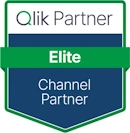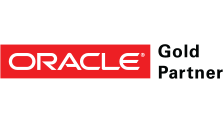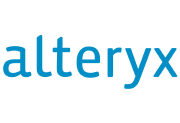Donald Farmer, Vice President of Product Management for QlikTech, shares his insights on how data ownership will be in the hands of the consumers, not its originators.
Donald’s Insights
Donald Farmer, Vice President, Product Management, QlikTech
What is your biggest prediction of how the cloud will change IT and business in the next 3 years?
“Often, when I talk with IT departments about cloud, they are focused on what they will do. Should they deploy ERP or CRM or BI in the cloud? That’s a big change for IT, but it’s not the biggest.
What is already changing the relationship between IT and business is the proliferation of consumer uses of the cloud in business scenarios.
Evernote and Dropbox, for example, enable business users as consumers to spin up their own note-taking. There’s also collaboration and storage without IT’s permission. Increasingly, business users are adopting video-conferencing, document authorship, scheduling, project management … you name it. Whatever IT is slow to deliver, consumers can get it cheaply, quickly, and often with outstanding quality in the cloud.
This is a profound change in the relationship of business users to IT. Consumers have access to better technology than IT departments. Over the next three years, we will see the advantages – and the very considerable risks — of this unavoidable reality play out.
Can you share one prediction on how the roles of CTOs, CIOs and CMOs will co-mingle in the next 3 years?
Just one? Then let’s focus on the most important one. Today, most CIOs report into the CFO. In the future, expect more and more Information Officers to have a real seat of power in the C-Suite.
What new data ownership models will dominate in 2-3 years given the converging role of IT and business?
Today, data ownership emerges from technical proximity. The owner of the originating system, or the storage system, ultimately controls the data.
Why?
Because even if a data steward nominally owns the business definitions and value of the model, traditional schema-on-write systems impose structure (and frequently integrity and quality) at source. Who has “the right to write†effectively owns the data. Their governance, for good or ill, cascades through all subsequent uses.
Big Data is changing that; not by volume, velocity, or variety, but by the fundamental shift from schema-on-write to schema-on-read.
In the future, the structure, integrity and governance of data will largely be determined in the domain of the consumers rather than the originators.
To be ready for this, we will need to see a change in IT’s approach to their role. They will move from gatekeepers, guarding data jealously from misuse, to be storekeepers — proactively sourcing, preparing and offering data for consumers with the best quality they can.”
Stay connected with Donald Farmer on Twitter at @donalddotfarmer.
Read more: http://insights.wired.com/profiles/blogs/cloud-leaders-shaping-it-and-business-series-donald-farmer-of#!#ixzz2lysRKRTB






